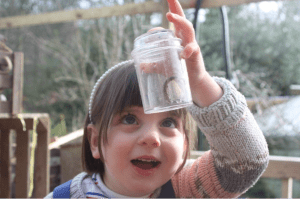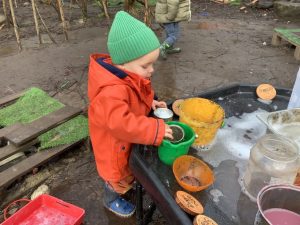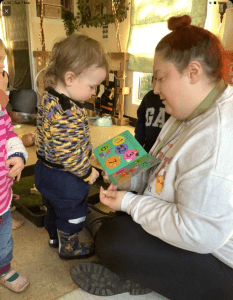The importance of STEM/STEAM learning in EYFS (Science, Technology, Engineering, Art and Maths)

Young children are the ultimate sources of wonder and natural curiosity, with limitless drives to explore. They are the world’s natural problem solvers, seeking new and exciting challenges and ways to ‘do’ and improve things. They predict outcomes, test their ideas or questions, spot patterns, estimate and evaluate critically. Through incorporating aspects of STEAM into our child-led-play environment, children are encouraged to develop their resilience and to communicate, work collaboratively and to make compromises.
Each of these skills are aspects of the EYFS Characteristics of Effective Learning. At Inspirations Nurseries I believe that STEAM is naturally embedded in our ethos and pedagogy and should be in all early years education and settings.
STEAM is a multidisciplinary and holistic approach to teaching these subjects, which is what our provision is based on, the areas where learning overlaps. Our outdoor setting/classrooms, art studios and child-led learning approach already provides a rich STEAM enabling environment where children can experiment, explore and have a wonder for their world.
Science is fully embedded in our provision: within the daily and seasonal links to nature, cycles (tadpoles/chicks/weather/water/decomposition) and the equilibrium needed for different types of energy (their transfers and ‘cause and effect’). It is in chemical reactions, materials and their properties, in temperature, size, force and motion.
 We support our children to experiment with ‘cause and effect’, providing sensory experiences with construction and creative media resources, using containers, utensils and other tools for transforming materials from solids to liquids. We use textured materials and ramps with vehicles to investigate the speed and force of objects in a developmentally and appropriate way.
We support our children to experiment with ‘cause and effect’, providing sensory experiences with construction and creative media resources, using containers, utensils and other tools for transforming materials from solids to liquids. We use textured materials and ramps with vehicles to investigate the speed and force of objects in a developmentally and appropriate way.
In the last few weeks, the children in our toddler room have been blending, stirring, whisking silly soups and potions. They have been measuring ingredients when making pancakes and looking at the capacity of containers in the water trays. Our pre-schoolers have been using magnifying glasses to observe various “minibeasts” collected from various locations around nursery, whilst extending their interest of digging and improving their fine motor skills.
Technology, and tools like projectors, cameras, microscopes, sensory toys, lights, mark making and cutting tools, are part of our continuous provision. We also use online platforms and apps to provide learning opportunities for children to record and observe. Technology helps children to make discoveries and record findings, to explore the consistency, composition and uses of materials and resources.
We have a nursery full of budding engineers, and architects who daily stack, design, construct, connect, and build. They make houses, towers, bridges, and roads for their vehicles and containers, traversing and transporting which extends their own learning journey. As children play, staff promote STEAM in their interactions, provocations and questioning.
Our resident atelierista, provides a wealth of opportunities for extending STEM subjects and skills within the arts and creative play. A curriculum incorporating the arts has been proven to increase creativity, academic performance, motor skills, while enhancing visual learning and boosting higher decision-making and critical thinking skills.
 Mathematical literacy is enriched daily through singing and stories. Our environment and the continuous provision of resources, such as containers, funnels, measuring cylinders and loose parts, allow opportunities to compare size, capacities, volumes as well as categorisation of shapes and colour.
Mathematical literacy is enriched daily through singing and stories. Our environment and the continuous provision of resources, such as containers, funnels, measuring cylinders and loose parts, allow opportunities to compare size, capacities, volumes as well as categorisation of shapes and colour.
STEAM takes STEM to the next level by including the process of innovation and creativity. The integration of these principles through the arts fosters a generation of future innovators who can link their learning and skills together, removing limitations and replacing them instead with wonder, critique, inquiry, and innovation.
Kellianne Moulton